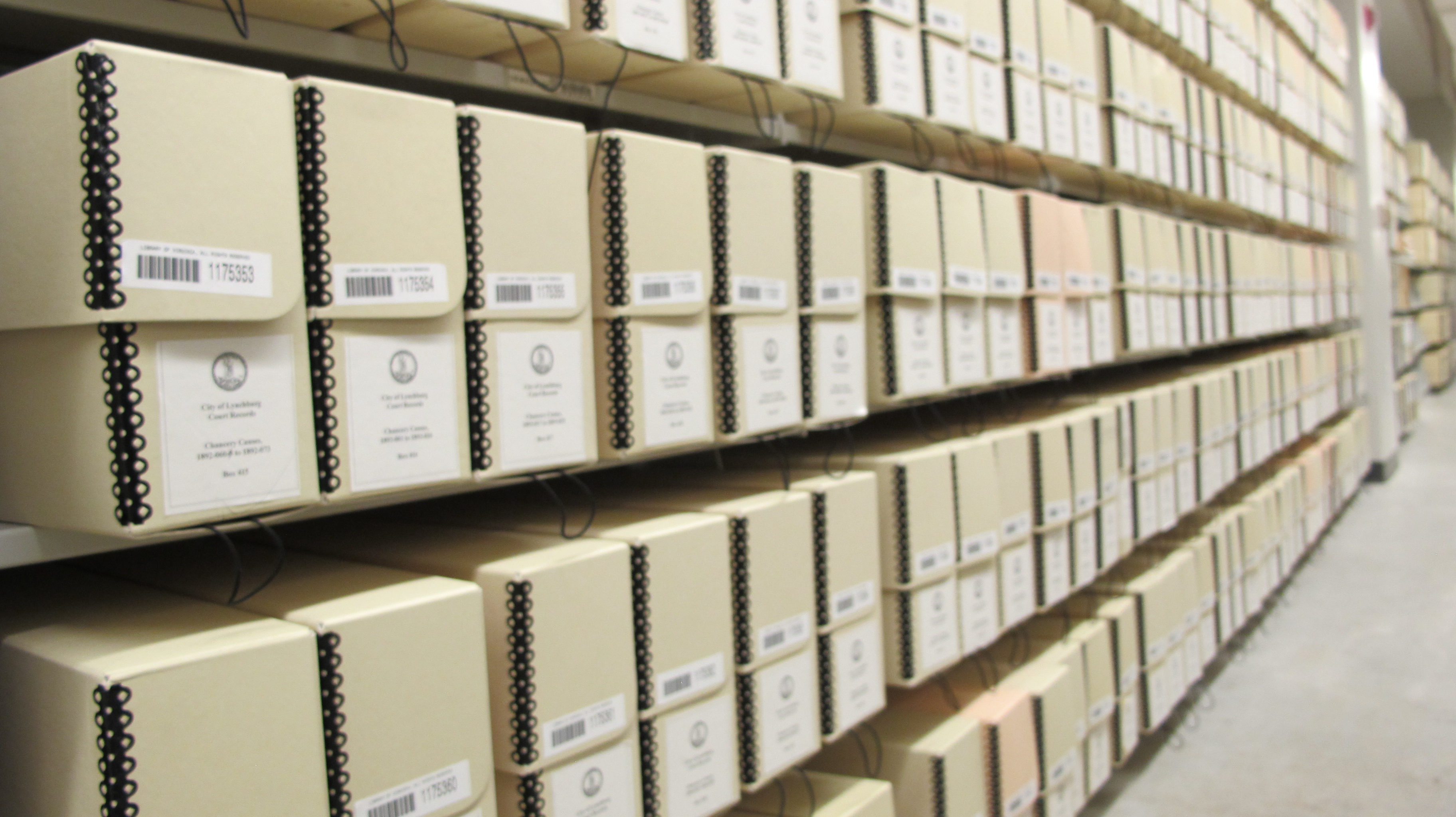Did you ever wonder where “Egypt” was in Loudoun County or how the Civil War affected the settlement of estates when legatees lived outside of Virginia? Or did you ever wonder about how the courts dealt with slaves when their owners died? Or what happens when someone makes a bequest but does not use the exact name of the group in their will?
If you have ever wondered about historical questions involving Loudoun County, Virginia, there’s a new and valuable resource available from the Library of Virginia, which helps to preserve and make accessible the chancery records from Loudoun County from 1758 to 1912. The records are the latest local records to be processed, indexed and digitally reformatted as part of the Library’s innovative Circuit Court Records Preservation Program. The records can be accessed in the Chancery Records Index in Virginia Memory. Loudoun County is the 49th jurisdiction in Virginia to have its records preserved and made available in perpetuity. The Library of Virginia has posted more than five million digital images to date as part of the chancery program, and more locality records are in the pipeline.
“These records are important because they help document the rich history of Loudoun County and its inhabitants,” said Carl Childs, director of Local Records Services at the Library. “To truly understand the history of a region, a person must research the records of the local circuit court, particularly the chancery records, as they provide critical information for historians, genealogists, and other researchers.”
Case by case, chancery records tell the story of Virginia. Cases may begin with a bill of complaint, explaining the background of the action, followed by an answer from the parties being sued. Some chancery cases could not be readily decided by existing written laws, so judges and court-appointed commissioners decided a fair and equitable settlement of the case based on the evidence presented and reported their findings to the court. The court’s decision, or final decree, was the last step in the proceedings. These records reveal detailed stories about individuals, and illuminate the history of the county in which they lived. A broad spectrum of citizens—rich and poor, black and white, slave and free—appear in chancery cases. These records tell us about families, the economy, businesses, and schools.
What about “Egypt”? It was a large farm located just a few miles southeast of Leesburg. Today it is a prime location for real estate development. Heirs living outside the Confederacy sometimes found their inheritance had been invested in Confederate bonds or exchanged for Confederate currency, which at the end of the Civil War was worthless. As for slaves they were divided among heirs with little regard for family ties.
When Anna Roszel of Loudoun County died childless and without blood relatives her will contained bequests to charitable organizations among them a $2,000 bequest to the American Society for the Colonization of Free Persons of Color. When the administrator of her estate refused to pay the bequest the American Colonization Society took him to court in 1844. The initial ruling was against the Society based among other things on the fact that the bequest was not by the name and style by which the Society was incorporated. The Society appealed and the Special Court of Appeals found in favor of the Society ordering payment of the $2,000 plus interest at the rate of six percent.
Chancery cases are a valuable source of local, state, social, and legal history and serve as a primary source for understanding a locality’s history. Often the cases document disputes over unpaid bills, failing marriages, and the care of minor children. They show the growth of business and industry in a locality.
Bold graphics sometimes illustrate cases involving disputes over payments. The 1894 dispute between Ewell B. Atwell and Mary Survick and Boyd Survick over a steam merry-go-round and engine resulted in the merry-go-round ultimately being auctioned. A broadside advertised the July 21, 1894 sale and is part of the record of the case.
“Loudoun County is rich in history and we are pleased to participate in the Library of Virginia’s preservation grant programs. By establishing a partnership with the Library, we are ensuring the permanent preservation and safekeeping of Loudoun’s history while making valuable information available for citizens,” said Gary M. Clemens, the Clerk of the Circuit Court in Loudoun County. “Citizens today and most importantly, future generations will have the benefit of reviewing Loudoun’s historic records due to the implementation of these programs.”
Clemens credits his historic records manager, John Fishback, with the supervision and implementation of the project. “Without the support of Circuit Court Clerk Gary Clemens and John Fishback this project would not have been possible,” said Carl Childs. “The Clerk and his staff were committed to preserving these important records and to making them accessible to the public.”
-Jan Hathcock, Public Information & Policy Coordinator








